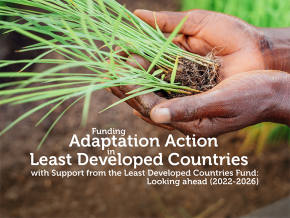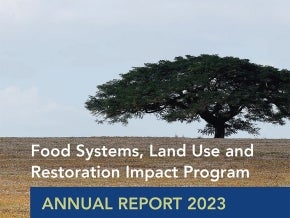
The private sector must begin preparing for climate change and the ensuing disruption to operations and services with new approaches
The future success of the private sector may not only depend on how successfully it can mitigate, but also on how it can adapt to climate change. Extreme weather events are already causing havoc to operations, supply chains and commerce all over the world.
Only this summer, flooding in the US Midwest destroyed corn and soya crops; the Bahamas suffered their worst hurricane on record; while in Europe, train companies turned away passengers because tracks were at risk of buckling in record summer temperatures. Wherever you were, it was not business as usual.
Yet climate risk continues to be ignored by most businesses. Investment is not flowing to where it is needed most: to build more resilient economies in response to global warming.
There are exceptions, of course. Shipping company Maersk is studying how to make ports more resilient to rising seas. Bloomberg, the news and financial-data company, has relocated a key data centre out of Manhattan to protect its equipment against flooding.
We are surprised that only a handful of companies have developed plans for a future on a warming planet, not least because adaptation is in their best interests.
The Global Commission on Adaptation estimates that investing $1.8 trillion to climate-proof businesses and the broader economy between now and 2030 could generate up to $7.1 trillion in net benefits. This is a very attractive return on investment.
And, according to a recent survey by CDP (Carbon Disclosure Project), half of the world’s biggest companies believe climate-adaptation solutions could result in $236 billion in increased revenue.
Climate inaction equates to leaving money on the table – and the decision to “delay and pay” could have devastating consequences for businesses and families, especially in developing countries where climate risks are highest and already demonstrating itself. If we don’t use our capabilities and innovative power to make the most vulnerable countries more resilient, we take a big risk on mass immigration and the societal tension this will create as well. None of which is good for business.
It no longer makes sense for companies to think about climate change mitigation and climate change adaptation as separate line items. The private sector needs an integrated strategy to confront climate disruption - business leaders would make better decisions by considering both sides of the equation together.
Investing in resilience takes many forms. Agricultural and industrial companies need to ensure their supply chains as well as their own operations can withstand the disruption of extreme weather events.
Meanwhile banks strengthen their portfolios when they help finance climate-ready infrastructure, and insurers protect themselves against crippling weather-related claims when they market insurance products with built-in incentives for adopting greater climate resilience.
Given that climate adaptation makes sound business sense, how can we increase private-sector involvement in adapting to a warming planet?
There is a clear role for governments to play in supporting this strategic shift, in pursuit of what the Global Commission on Adaptation calls a “triple dividend” of avoided losses, increased productivity and innovation, and the generation of social and environmental benefits. For instance, there is a need for increased focus on climate risk assessments. While companies should be more transparent on how risks are assessed and managed, businesses would benefit from a clear regulatory framework for reporting on anticipated impacts from climate change.
Regulatory and business authorities in the world’s largest economies should make climate risk disclosure a requirement for publicly listed companies. As risks become more transparent, better understood and more accurately priced, the private and public sectors can collaborate better on ways of sharing costs and benefits.
We also need to prioritize new partnerships that can support climate adaptation. The public sector has an important role to play in helping prepare a framework for companies across sectors and industries to collaborate.
For example, the Food and Land Use Coalition, a community of businesses, governments, and research and technical organizations work together on solutions for the agricultural sector. In Rwanda, Africa Improved Foods, a Royal DSM initiative, is a good example of a for-profit public-private partnership that incorporates both climate adaptation and sustainability, while increasing self-sufficiency.
We know there are vast risks that need to be handled related to climate change, and the only way to manage them effectively is through such partnerships and coalitions.
By working together and jointly prioritizing climate adaptation alongside mitigation measures, the private and public sectors can create radical new climate solutions.
Adaptation can open up new markets and provide a much-needed booster shot for the global economy. It is not only the right thing to do, it is the smart thing to do.
This piece was originally published by Thomson Reuters Foundation News.


